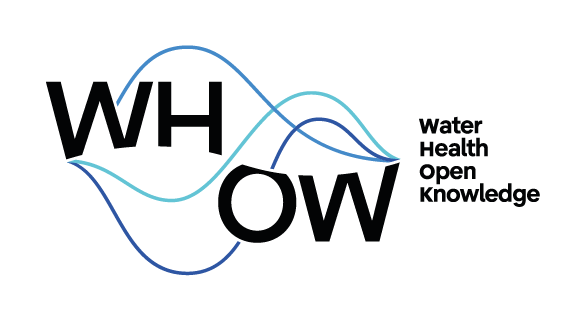Results
To date, the following deliverables have been released as part of the project activities:
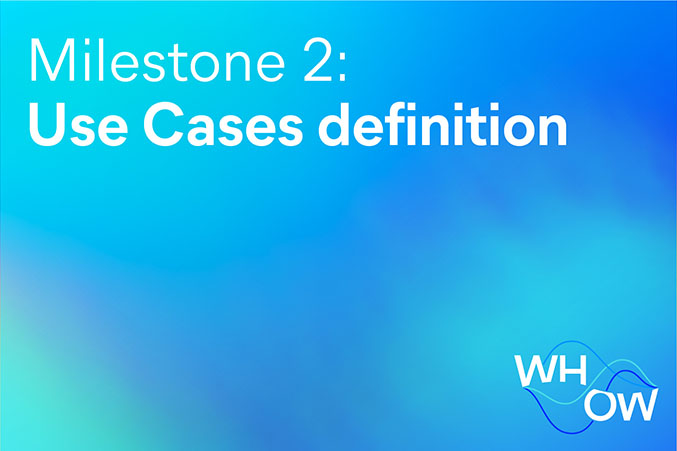
Milestone 2
This deliverable discusses the use cases of the WHOW project. The use cases’ requirements, as well as their related datasets, have been outlined. The Use Cases have been gradually developed and fine tuned using a dual approach:
- Top-down: identifying legislative and policy requirements at the EU and Italian level in the water and health domains;
- Bottom-up: gathering requirements through a co-creation programme where interested stakeholders and users have been involved from the initial phases of the project.
They represent the basis for the technical development activities and will be further fine tuned in alignment with the future project milestones.
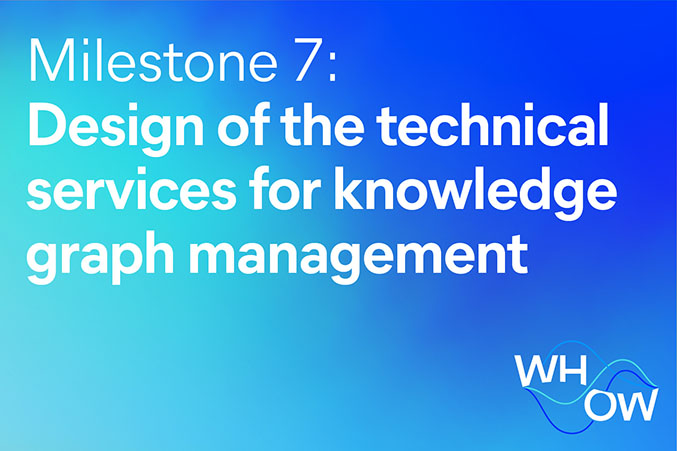
Milestone 7
This deliverable focuses on the design of the technical architecture and describes: a set of technical use cases that define how different types of users (data consumers and data providers) can interact with, and leverage the functionalities offered by, the WHOW technical architecture; the functional and non-functional requirements that are derived from each technical use case and used in synergies with the business use cases of the project; the high level view of the architecture, made up of software services and semantic resources; a component based design of the architecture that illustrates the interfaces used in the interactions among the architectural components; the process that is enabled in the construction of the ontologies and controlled vocabularies of the WHOW knowledge graph.
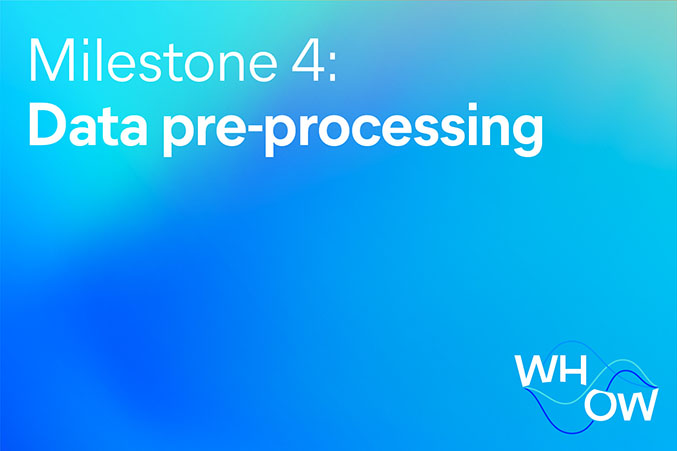
Milestone 4
This deliverable is the result of the activities conducted in the context of Activity 3 related to “Knowledge Graph Definition”. The document describes the operations carried out at each data provider of the WHOW project regarding the data pre-processing; that is, a preparatory step in the data management process (i.e., linked open data process) necessary to enable an effective machine elaboration of the data.
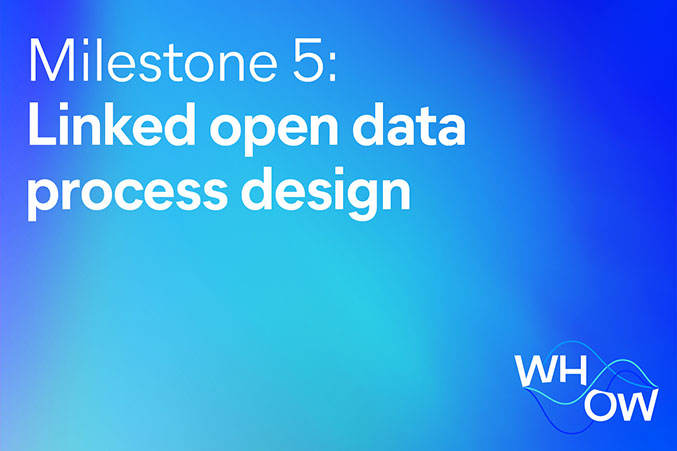
Milestone 5
This deliverable focuses on the design of the WHOW Linked Open Data (LOD) production process to be used by data providers and describes: i) the current open data systems that are deployed at ISPRA and Aria SpA; ii) the design of the WHOW LOD process, presenting both high level view and more detailed aspcts that leverage the UML language notation; iii) an assessment of the possible tools that can be used to realise the actual transformation of input datasets into a semantic knowledge graph represented through the standard RDF. A potential declarative solution is included, to be integrated in data provider systems, that exploits an OWL meta-level ontology to provide declarative descriptions of a workflow to be executed by a workflow management system.
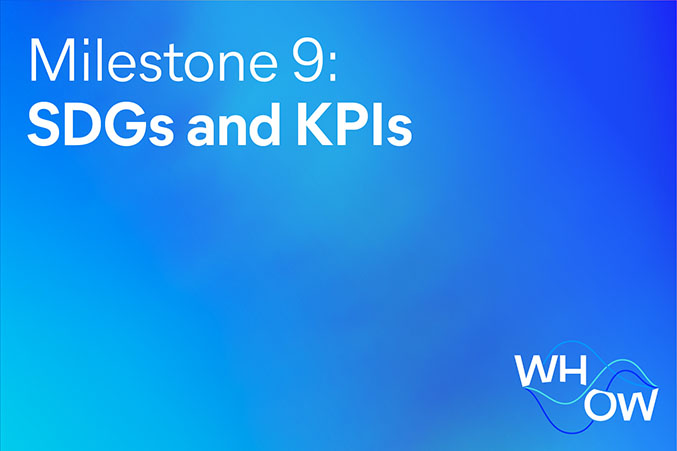
Milestone 9
This deliverable introduces the WHOW data quality framework. It encompasses: i) a set of indicators distinguished between business and technical indicators; ii) some priorities assigned to the indicators; iii) and an evaluation method that varies from business to technical indicators. Among the business indicators, SDGs indicators have been selected after an analysis of the UN Agenda 2030 in addition to thematic indicators strictly dependent of the WHOW use cases and requests emerged during the co-creation programme. The technical indicators are mainly based on the FAIRness principles, data quality characteristics as those defined in the ISO/IEC standard 25012, metadata quality and semantic quality principles.
Media
This section includes the communication material of the WHOW projects, such as presentations and fact sheets.
Scientific Publications
This section includes the scientific publications of the WHOW project.
Gangemi, A.S. Lippolis, G. Lodi, A.G. Nuzzolese. Automatically Drafting Ontologies from Competency Questions with FrODO. In Proceedings of the 18th International Conference on Semantic Systems (SEMANTiCS 2022), 13-15 September 2022, Vienna, Austria. Vol. 55 Towards a Knowledge-Aware AI, pp. 107–121. IOS Press, Amsterdam, Netherlands, 2022. DOI: 10.3233/SSW220014.
URL: https://ebooks.iospress.nl/volumearticle/60716
- Gangemi, A.S. Lippolis, G. Lodi, A.G. Nuzzolese. FrODO: Generating Ontologies from Competency Questions in One Click. In Proceedings of Posters and Demos of the 18th International Conference on Semantic Systems (SEMANTiCS 2022), 13-15 September 2022, Vienna, Austria. Ceur.ws, Achen, Germany, 2022.
URL: https://ceur-ws.org/Vol-3235/paper13.pdf
A.S. Lippolis, G. Lodi, and A.G. Nuzzolese. Pattern-based design for modeling an ontology network in the water and health domains. In Proceedings of the 14th Workshop on Ontology Design and Patterns (WOP 2023) colocated with the 22nd International Semantic Web Conference (ISWC 2023) November 6-10, 2023. Athens, Greece. Ceur.ws, Achen, Germany (In press).
URL: https://ceur-ws.org/Vol-3636/paper3.pdf
G.Carletti, E. Giulianelli, A.S. Lippolis, G. Lodi, A.G. Nuzzolese, M. Picone, G. Settanta. The Water Health Open Knowledge Graph. Submitted to the Extended Semantic Web Conference (ESWC 2023).Preprint: https://arxiv.org/abs/2305.11051
The following publications include the WHOW project in the Acknowledgements:
A.S. Lippolis, A. Klironomos, D.F. Milon-Flores, H. Zheng, A. Jouglar, E. Norouzi, A. Hogan: Enhancing Entity Alignment Between Wikidata and ArtGraph Using LLMs. SWODCH 2023. https://ceur-ws.org/Vol-3540/paper7.pdf
A.S. Lippolis: Discovering and Modeling Knowledge Patterns from Tropes in Scientific Texts. Doctoral Consortium of the International Semantic Web Conference 2023. https://iswc2023.semanticweb.org/wp-content/uploads/2023/11/ISWC2023_paper_373.pdf

